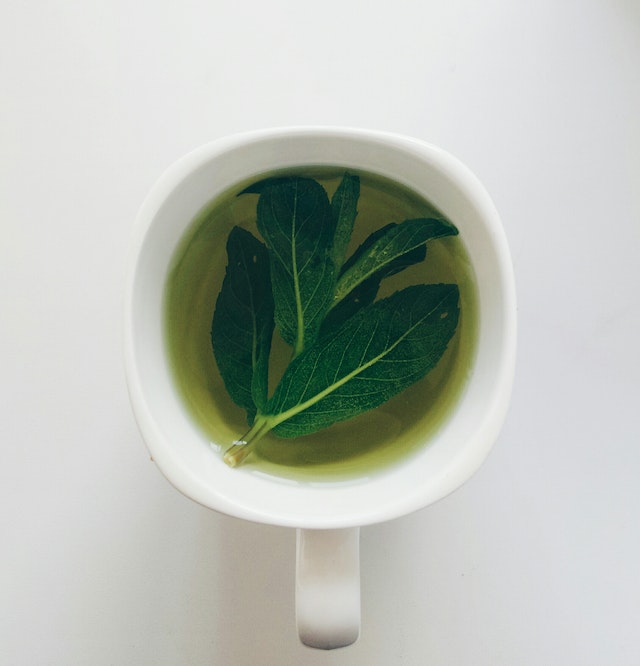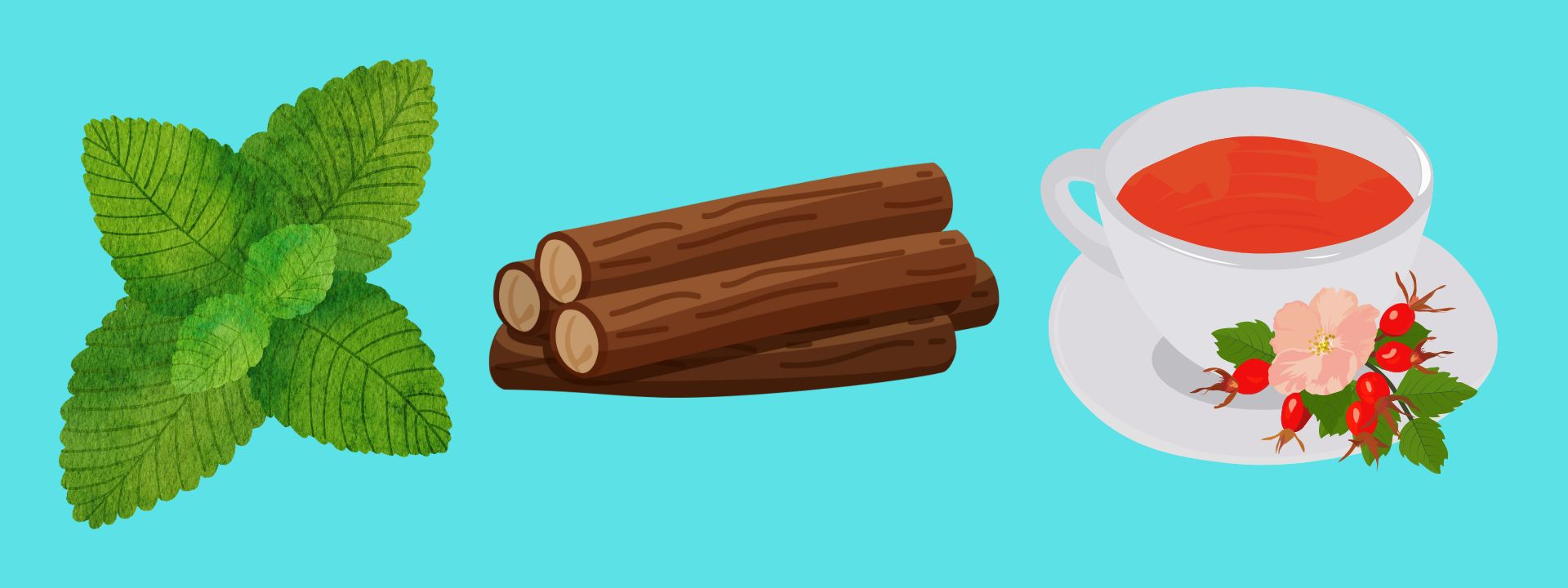From green tea to peppermint, explore the best tea for UTI. Learn the benefits of each tea, its chemical composition, and how it can improve your overall health. Start fighting UTIs today with the perfect herbal tea for you!
urinary tract infection (UTI), is an illness that results from a bacterial attack on your urinary system.
The most common treatment for UTIs is antibiotics.
However, with emerging trends of drug abuse and resistance, you may want to turn over to alternative natural treatments that have stood the test of time like herbal teas.
For years’ traditional medicine has used herbs to make healing teas.
Today, scientific research shows that a variety of herbal teas are rich in antimicrobial, anti-inflammatory and antioxidant properties that can be beneficial to your health including prevention of UTIs.
In this post, I will show you the best tea for UTI which can help reduce discomfort and promote overall urinary health. Plus I give you simple recipes of how to prepare these teas at home.
Want to learn more about the Best Teas for UTIs?
Keep reading.
7 Best Teas for Urinary Tract Infection
1. Green tea for UTI
Green tea is a famous beverage in China and Japan. This tea comes from the leaves and buds of the Camellia sinensis plant.
According to the National Centre for Complementary and Integrative Health, Green tea may benefit human beings in various ways.
Studies link this beverage to improving mental alertness, relieving digestive issues, calming headaches, and promoting weight loss.
Also, the FDA has approved a specific green tea extract ointment as a prescription drug for treating genital warts.
And not just that.
Green tea and its components, including epigallocatechin-3-gallate (EGCG), have been studied for their possible protective effects against heart disease and cancer.
According to Science Direct, Green tea contains a rich supply of plant compounds called polyphenols.
These compounds have strong antimicrobial and anti-inflammatory effects known to inhibit the growth of Escherichia coli UTI-causing bacterial strain.
Additionally, another research suggests that ingesting green tea containing EGC may help cure UTIs and improve the effectiveness of certain antibiotics frequently used to treat UTIs.
How does green tea help prevent UTIs?
Drinking two to three cups of green tea daily can help clear a urinary tract infection.
Why?
Because of this tea contains antioxidants and antimicrobial effects against UTI-causing bacteria and can also reduce bladder inflammation.
Other studies have shown that people who drink these tea regularly stands a chance to lower the incidence of UTIs by about 40% than those who do not drink green tea.
A cup (240 mL) of brewed green tea contains approximately 150 mg of EGC.
The current research indicates that as little as 3–5 mg of EGC may help inhibit bacterial growth in the urinary tract, but this theory hasn’t yet been proven in humans.
A moderate intake of green tea is safe for most people. However, it naturally contains caffeine, which may contribute to poor sleep and restlessness.
Moreover, consuming caffeine while you have an active UTI may worsen your physical symptoms. Thus, you may want to opt for decaffeinated green tea products instead.
2. Cranberry Tea for UTI
Cranberries belong to the heather berry family, like blueberries, bilberries, and lingonberries.
They usually are dwarf shrubs with a sharp and sour taste; no wonder they are rarely eaten raw.
Cranberries contain A-type proanthocyanidins.
According to a study, A-type proanthocyanidins are a type of phytonutrient that could help Prevent E. coli bacteria from attaching to the lining of your bladder and urinary tract.
This significantly lowers the chances of developing UTIs.
In fact, research suggests that it can lower the number of times someone experiences UTIs in a year, especially for those who have recurrent UTIs.
If you want to learn how to make your sweet cranberry tea, here is the recipe.
3. Chamomile tea for UTI
Chamomile tea contains chemicals called flavonoids. This herb is used in herbal medicine to treat various ailments, including UTIs.
According to a publication in the American Chemical Society Journal of Agricultural and Food Chemistry, chamomile tea was associated with a significant increase in urinary levels of hippurate, a powerful indicator of high phenolic compounds.
Phenolics are plant-based compounds with antibacterial and anti-inflammatory activities.
Some of these have been associated with an increased boost in the immune system and fight infections associated with colds and UTIs.
According to this publication, the Levels of both hippurate and glycine remained elevated for up to two weeks after the participants stopped drinking the tea.
This was an indicating that the compounds in chamomile tea may remain active in your body for quite some time.
Additionally, chamomile may have a mild diuretic effect, making you urinate frequently. Frequency urination is a crucial factor for healing UTIs.
Who should avoid chamomile tea?
The following people should refrain from taking chamomile unless advised otherwise by a healthcare practitioner:
- People with a history of severe allergies to plants like ragwort, daisy, chrysanthemum, or marigolds. You should avoid chamomile, as allergic reactions can get worse with time.
- if you are on blood-thinning drugs, such as warfarin.
- Infants and very young children: Chamomile tea may not be suitable for young children since it may contain botulism spores.
How do you make the perfect chamomile tea?
Ingredients
- food-grade dried chamomile flowers or a teabag
- Clean Water
- A sweetener like honey (optional)
How to make chamomile tea.
- Heat water until it boils and pour it into a teapot
- Put the chamomile flowers in your teapot and cover them with water.
- Allow it to steep for 4-5 minutes.
- Then strain the tea from the pot, sweeten and enjoy it while hot
4. Parsley Tea for UTI
Parsley is a herb widely used in folk medicine to treat various ailments, including UTIs.
Most women with recurring UTIs have found parsley an excellent natural remedy for lowering the risk of frequent yeast and bladder infections.
According to research, parsley can improve the symptoms of UTI. This role could be attributed to its chemical and physiological properties.
This herb is rich in apigenin.
Apigenin is a compound with anti-inflammatory properties that are vital in treating UTIs.
It also possesses a diuretic effect which is supposed to help flush UTI-causing bacteria out of the urinary tract.
Additionally, one report suggests that a combination of parsley tea, garlic, and cranberry extract prevented UTI recurrence in women with chronic UTIs.
However, more research is needed to ascertain the effectiveness of parsley tea on UTIs using a larger group of participants.
How to make Parsley tea
Ingredients
- 2 teaspoons of dried parsley or 2 tablespoons of freshly chopped parsley for a cup of tea
- A cup of clean water
- Fresh ginger
Procedure
- Heat one cup of water until it boils
- Steep your fresh or dried parsley in hot water
- Add your crushed ginger to the mix
- Steep your herbs for about 10 minutes
- Strain and dry it warm
5. Cinnamon and Honey Tea for UTIs
Cinnamon tea is another beverage that may benefit women with recurring UTIs.
Cinnamon tea comes from the inner bark of the cinnamon tree. Usually, the bark of the cinnamon tree will curl into rolls while drying, forming the cinnamon sticks.
These sticks are either steeped in boiling water or ground into a powder that can be used to make the tea.
Women have found solace in cinnamon as a spice and medicine for many years.
Studies show that cinnamon is a medicinal herb rich in polyphenol antioxidants. It also possesses anti-inflammatory, antidiabetic, antimicrobial, and anticancer effects.
Besides, it can also help lower the risk of cardiovascular disease and neurological disorders like Parkinson’s and Alzheimer’s.
Additionally, research suggests that Compounds found in cinnamon tea may help fight off bacteria, fungi, and mold.
For instance, a test-tube study found that cinnamaldehyde, the main active component in cinnamon, prevents the growth of various bacteria, fungi, and molds, including common Staphylococcus, Salmonella, and E.coli bacteria, which can cause infections.
Also, you should add a little honey
Studies have also shown that honey possesses antibacterial activities against multi-drug-resistant bacteria causing UTIs.
Use freshly harvested, natural, untreated, and unpasteurized honey for the best result.
The mixture is excellent for destroying bladder germs.
Mixing a teaspoon of cinnamon powder and half a teaspoon of honey in lukewarm water can help tackle urinary bladder infections.
6. Marshmallow Root Tea for UTIs
Marshmallow root, scientifically known as Althaea officinalis, is a flowering plant with many benefits.
Traditionally, this plant was used to treat cough, digestion issues, and skin irritation.
Currently, research is emerging on the possibility of this plant having additional benefits for human health.
According to a 2016 publication, Marshmallow herbs may help with urinary and gynaecological disorders in females.
Marshmallows consists a soothing effect that may help relieve inflammations in the urinary tract.
Another study also shows that marshmallows may contain antibacterial effects that inhibit some bacterial growth, making them effective in treating urinary tract infections.
How do you make Marshmallow tea?
- Get 1 or 2 tablespoons of freshly dried marshmallow root
- A cup of water
- A natural sweeter like honey
How to make your tea
- Boil a cup of water
- Using a motor, crush 1-2 tablespoons of fresh marshmallow root
- Put your crushed herb in a cup of hot water and cover
- Steep your mixture for about10 minutes
- Strain and add a natural sweetener like honey if you like
- Drink 2-3 cups a day.
7. Peppermint Tea for UTIs
Peppermint which is scientifically known as Mentha × Piperita, is an aromatic herb originating from the mint family that includes watermint and spearmint.
The herb, mainly grown in Europe and Asia, is best known for its pleasant minty taste.
Besides, it has various health benefits like relieving digestive issues, muscle relaxation, and freshening the breath.
And not just that.
Studies also suggest that peppermint, especially oil, may have antibacterial properties that inhibit the growth of bacteria, fungi, and yeast.
In one research, peppermint oil was found effective in killing and preventing the growth of several bacteria, including E. coli, Salmonella, Staphylococcus Listeria, and pneumonia-linked bacteria.
How to make peppermint tea
While most people find it easy to buy ready-made tea bags or loose-leaf tea bags from stores, I prefer having fresh peppermint when dealing with UTIs.
To make your peppermint tea:
- Boil 2 cups of water on a stove or a boiler.
- Once your water is ready pour it a mug and add a handful of torn peppermint leaves.
- Cover and steep for 5 minutes.
- Strain the tea and drink.
Peppermint tea is naturally caffeine-free, so you may drink it any time of day.
I love to enjoy this tea as a post-meal treat to aid digestion. However, you may also drink it in the afternoon to boost your energy levels, or before bed to help you relax.
Takeaway
Tea can be a valuable addition to your treatment plan for a UTI. There are many different types of tea that can help reduce symptoms and promote urinary health. However, it’s important to discuss any natural remedies with your doctor before you try them and be sure to stay hydrated and get plenty of rest to help speed your recovery.
If you’ve been dealing with discomfort from a UTI, try one or more of these teas and let us know how it worked for you!
UP NEXT:
- 8 Things Health Conscious Women Do To Prevent Urinary Tract Infection
- How to Quickly Ellevate Your Vaginal Itching Before Periods
- 7 Simple Diet Tips To Fight Recurring Candida Yeast Infection
DISCLAIMER The information contained in this post is for general information purposes only. I’m not a health practitioner and as such, this information should not be used as a substitute for consultation with your professional service provider.




